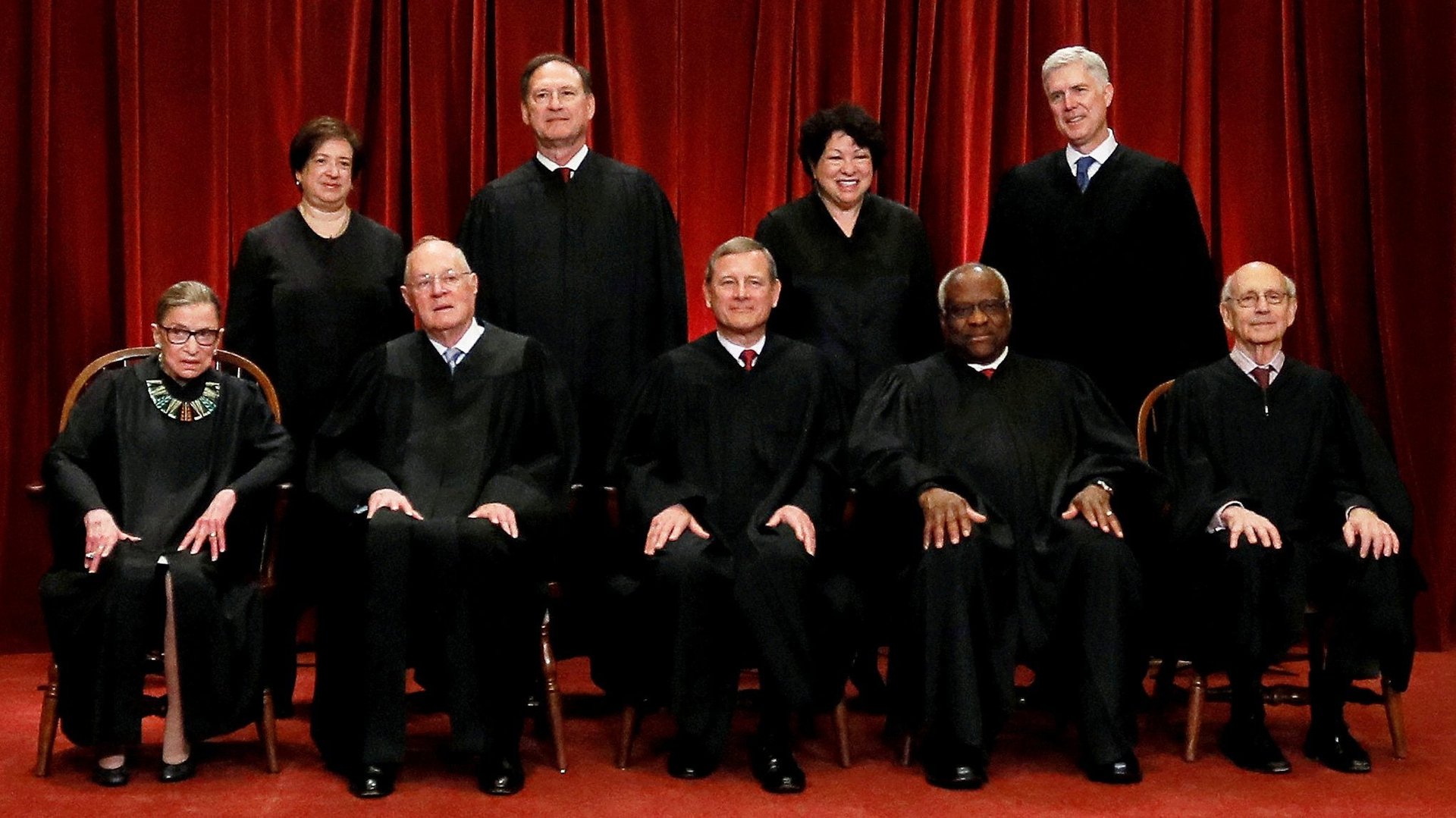Trump wants to make America great again by using the Supreme Court to gut the rights of non-union workers
The Trump Administration is waging a quiet war on workers. The effort involves anti-union appointments to federal agencies, repeal of Obama-era regulations that were designed to raise the wages of low and middle income workers, and support for anti-worker legislation in Congress.


The Trump Administration is waging a quiet war on workers. The effort involves anti-union appointments to federal agencies, repeal of Obama-era regulations that were designed to raise the wages of low and middle income workers, and support for anti-worker legislation in Congress.
But the most recent salvo may actually prove to be the most devastating. In a case called Murphy Oil, slated for the first day of the Supreme Court’s new term, the Trump administration is inviting the court to eviscerate the rights of employees who don’t have a union.
Traditionally, workers have turned to labor unions in their fight for a better life. But unions have been under attack for decades, and there are fewer unionized workers today than there were before there was a right to unionize. The vanishing power of unions has led not only to a stunning increase in economic and political inequality; it has left working people without the usual means of advocating for fair treatment in the workplace.
With unions disappearing, workers are creating other ways of participating in the economic decisions that affect their lives. Sometimes they use social media to communicate concerns about unsafe working conditions to each other and the public, like workers in Lakewood, Wash. who created a YouTube video when their employer exposed them to toxins in the workplace. Sometimes they turn to community based organizations to help them fight for higher wages, like housekeepers in Sante Fe who sought help from a community organization to fight a draconian wage cut. Other workers bring class action lawsuits to hold their employers accountable for wage theft, like the Murphy Oil employees who filed a Fair Labor Standards Act case against their employer for failing to pay them overtime and requiring them to work “off the clock.”
The good news for workers is that these “non-union” forms of self help have enjoyed protection under US labor law. When the Lakewood workers were fired for their YouTube video and the Sante Fe workers were fired for fighting the wage cut through their workers center, they won backpay from their employer. That’s because our labor law has never forced workers to voice their demands through traditional unions. As long as employees engage in peaceful concerted activity for mutual aid and protection–whether through a union, a community group, or social media–the law has protected their efforts.
The Trump administration, however, is trying to chip away at these critical rights in an argument that could leave workers who act outside of traditional unions with no legal protection. The argument begins in Murphy Oil with an attack on the right of the workers to bring collective lawsuits. Thus, the Trump administration is urging the Supreme Court to allow employers to force workers to stand alone in court or before an arbitrator when they want to hold their employers accountable for violating the law.
But the legal right to act collectively in a lawsuit is the same legal right that allows workers to create a YouTube video or to talk about working conditions on Facebook or to join an organization. In Murphy Oil, the Administration denigrates this right to act outside the traditional union context, calling it “residual,” and suggests that the court might leave only the “core” protection for unionization and collective bargaining. But in a world where traditional unions are becoming increasingly scarce, diminishing the circumstances in which labor law protects workers’ collective activity outside traditional union organizing is a profound threat to the continuing existence of any meaningful protection at all.
This may well be the administration’s goal: to gut the protections of US labor law and leave workers at the mercy of their employers. But that would be a disaster. Most employers, of course, don’t break laws and most treat their employees fairly. But not all do. And for workers who face unjust treatment at work–be it low pay, or unsafe working conditions, or illegal wage theft–legal protection for their efforts to secure improvements is essential. That’s why Congress enacted a labor law that offers security to workers who fight for their rights, whether they do that through a traditional union or through YouTube or through a lawsuit. The court should respect the law and reject the administration’s attempt to empty it of meaningful protection for all those working without unions.